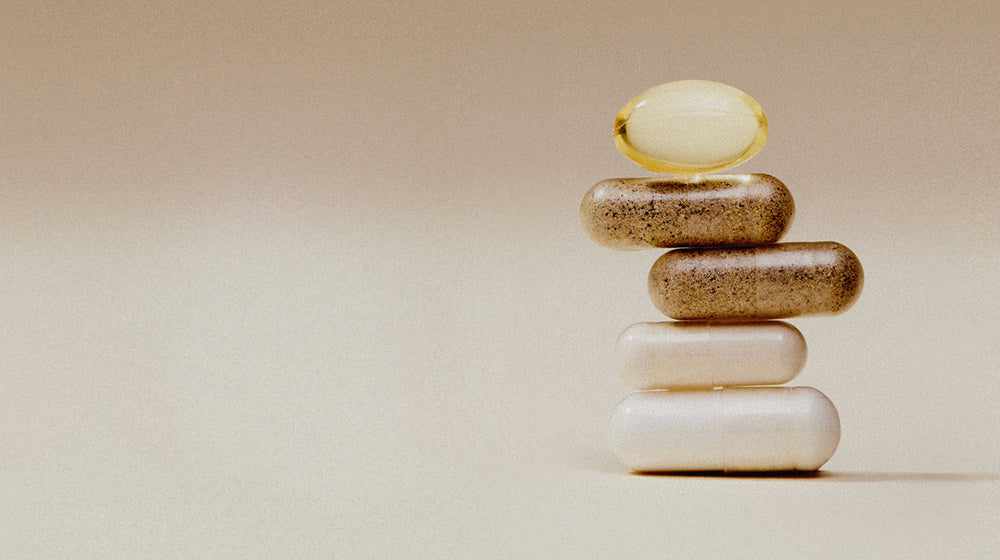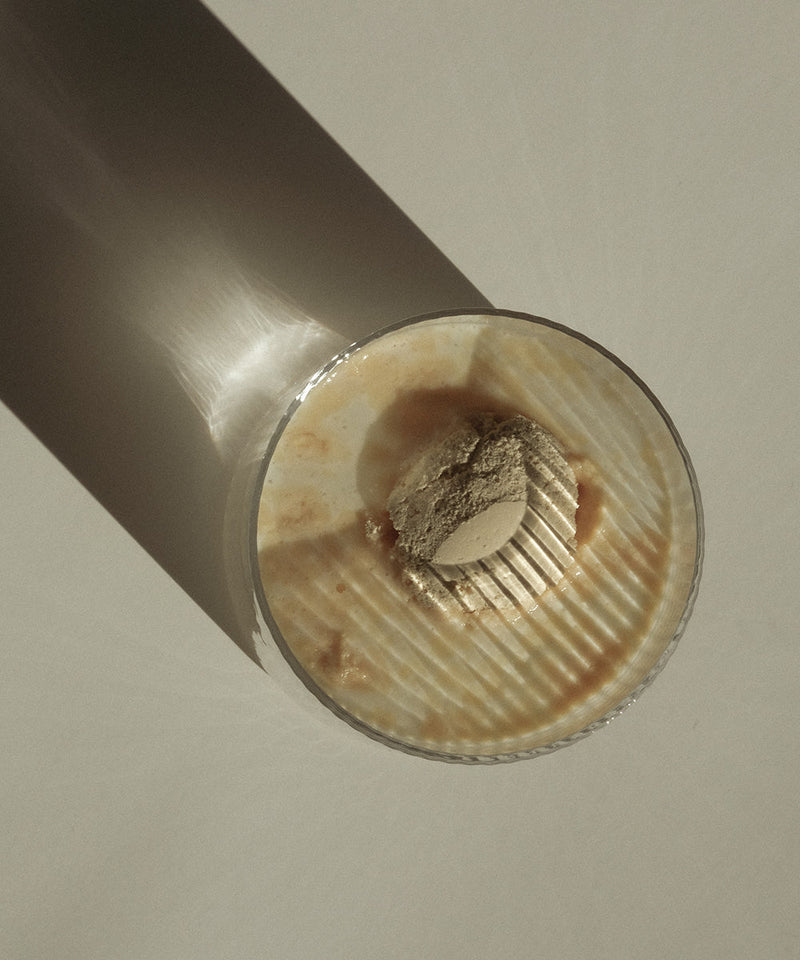Choosing the right protein powder can be a game-changer for anyone looking to incorporate more protein in their diet—especially for women who are looking to support muscle recovery or simply meet their daily protein needs. But with so many options on the market, it’s important to know what to look for to ensure you're getting the best of the best—and aligning with your health and wellness goals. Here are the key factors women should consider when selecting a protein powder.

1. High-Quality Protein Source
The source of protein in your powder matters. Plant-based protein powders can be a great option to avoid allergens like lactose, which can cause digestibility issues in some people. Plant-based protein powders typically include pea, rice, or hemp protein—but the caveat is that many plant-based protein sources are missing some key amino acids.1 Amino acids are the building blocks of protein—and a protein is considered "complete" if contains all nine essential amino acids. Pea protein is an example of a plant-based source that contains all nine essential amino acids—it's why our doctors and dietitians deliberately chose regeneratively-farmed pea protein when formulating Perelel's Triple-Support Protein.) Otherwise, you may need to opt for a blend.2
$39.95
Shop the Article:

Triple-Support Protein
/ Month
Shop Now
2. Supports Women’s Health and Reproductive Function
Protein is essential for hormone health, fertility, and overall reproductive health.3 For moms or women planning to conceive, adequate protein intake helps support a ton of crucial moments and processes, including:
- Hormonal Regulation: Protein plays a role in maintaining a balanced hormonal system, which is crucial for menstrual health, ovulation, and perimenopause.4
- Fetal Development: During pregnancy, protein is necessary for the proper growth and development of the baby, including the formation of tissues and organs.5
- Postpartum Recovery: Protein aids in muscle repair, energy production, and overall postpartum healing, making it an important nutrient for new moms.6
- Breastfeeding Support: A sufficient protein intake helps sustain milk production and provides essential nutrients for both mom and baby. 7
- Perimenopause: As your hormones fluctuate throughout the perimenopause transition, getting adequate protein is critical to preserve muscle mass.
Perelel's Triple-Support Protein was formulated specifically by OB/GYNs and dietitians to support women's specific nutritional needs as our hormones change.
3. Minimal and Clean Ingredients
Ingredients matter. Check the list for unnecessary additives, artificial sweeteners or sugars, and fillers.
4. Low Sugar Content
Excess sugar can lead to headaches and energy crashes. A quality protein powder is ideally low in added sugar. (Better yet: Our Triple-Support Protein doesn't have any added sugar, and still tastes delicious.)
5. A Boost of Fiber or Creatine
Some protein powders are fortified with added vitamins and minerals that benefit women. Did you know 90% of women don’t get the recommended daily intake of fiber?8 Choosing a protein powder with a boost of low-FODMAP fiber—meaning fiber that is gentle on the digestive system and less likely to cause bloating—can support digestive health, promote satiety, and help regulate blood sugar levels.9
And let's talk about creatine, a compound often associated with muscle growth and athletic performance. While creatine is often misunderstood as a "muscle bulker," it's actually highly beneficial for women. Creatine helps support muscle performance—but it's also an MVP for cognitive function.10 As women, changes in our hormone levels can change the way we utilize creatine in the body. So creatine can be particularly beneficial during our menstrual cycles, pregnancy, postpartum, and before, during, and after menopause. (So—a lot of us!)
If you’re aiming for a protein powder with these added benefits, look for formulations that include both fiber and creatine so you can maximize digestive and physical health. Perelel's Triple-Support Protein includes 5g of no-bloat fiber and 3g of creatine.
6. Digestibility and Gut Health
Protein powders should be easy on the stomach. Consider options that contain digestive enzymes, probiotics, or prebiotics, which aid digestion and help prevent bloating or discomfort.11 Women with lactose intolerance should opt for plant-based proteins or whey isolate, which has less lactose than whey concentrate. 12
In addition to choosing a protein powder that supports digestibility, many women find that pairing it with a quality hydration powder can help maintain electrolyte balance, support cellular hydration, and improve performance and recovery — especially during workouts or on busy days
And again—this is where the addition of a prebiotic, low-FODMAP fiber can be particularly helpful.
7. Adequate Protein Per Serving
Most women need around 15-30 grams of protein per serving, depending on their activity level and dietary needs.13 Make sure your protein powder provides a sufficient amount without unnecessary calories or fillers.
8. No Harmful Additives or Heavy Metals and Sustainably Sourced Ingredients
Some protein powders have been found to contain contaminants like heavy metals, which can be harmful over time. Look for brands that conduct third-party testing and have certifications for purity and safety. Bonus: Ingredients are sourced sustainably, with the planet and your health in mind.
9. Taste and Texture
Believe it or not, a protein powder should be enjoyable to consume! It should taste great (so—you know, you actually drink it) and be easy to mix—whether you're taking it with just water or blending it into a smoothie.
Finding the right protein powder as a woman means focusing on quality, nutrition, and digestibility. By focusing on these (and taste, let's be real), you can choose a protein powder that supports your health, fitness, and overall well-being without unnecessary additives or side effects.
Sign up to receive doctor-backed, stage-specific content in your inbox each week.
theFolio in Your Inbox
This article is for informational purposes only. It is not, nor is it intended to be, a substitute for professional medical advice, diagnosis, or treatment and we recommend that you always consult with your healthcare provider. To the extent that this article features the advice of physicians or medical practitioners, the views expressed are the views of the cited expert and do not necessarily represent the views of Perelel.
Resources:
- Ingredients to Look for in a Protein Powder, Mayo Clinic
- Combining Plant Proteins to Achieve Amino Acid Profiles Adapted to Various Nutritional Objectives—An Exploratory Analysis Using Linear Programming, Frontiers in Nutrition
- Protein Is Essential for Women's Health, UCI Health
-
Menstrual cycle and protein requirements of women, NIH
- Nutrition During Pregnancy: Part I Weight Gain: Part II Nutrient Supplements
- Postpartum Nutrition Tips to Help Recovery, Abbott
- Protein Requirements of Healthy Lactating Women Are Higher Than the Current Recommendations, NIH
- Most Americans Are Not Getting Enough Fiber in Our Diets, American Society for Nutrition
- Low FODMAP Diet, Cleveland Clinic
- The effects of creatine supplementation on cognitive performance—a randomised controlled study, BMC Medicine
-
The promotion mechanism of prebiotics for probiotics: A review, Frontiers in Nutrition
- Whey Isolate or Concentrate, Genetic Nutrition
- How Much Protein Do You Need?, Cleveland Clinic






















